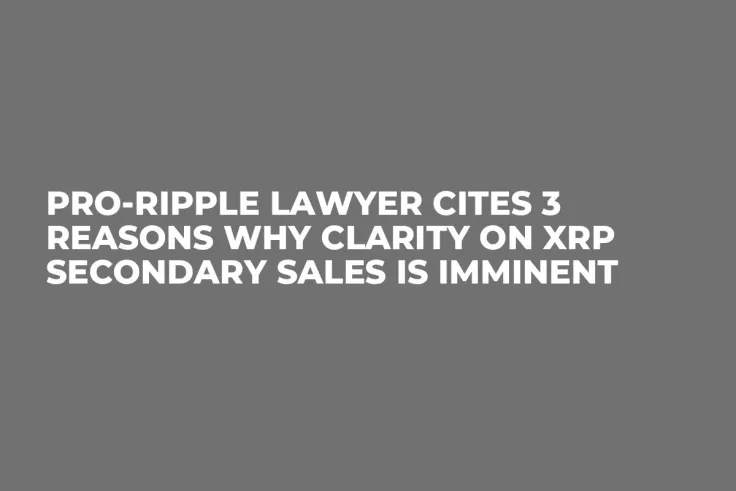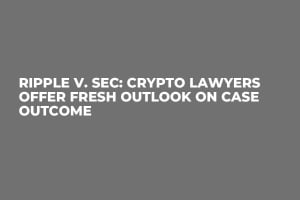
Disclaimer: The opinions expressed by our writers are their own and do not represent the views of U.Today. The financial and market information provided on U.Today is intended for informational purposes only. U.Today is not liable for any financial losses incurred while trading cryptocurrencies. Conduct your own research by contacting financial experts before making any investment decisions. We believe that all content is accurate as of the date of publication, but certain offers mentioned may no longer be available.
CryptoLaw founder and XRP holders' attorney John Deaton believes the ruling judge in the Ripple-SEC case will likely address the issue of secondary market sales.
This comes amid ongoing discussion that Judge Torres might not address the issue of secondary sales since it was not explicitly implied in the lawsuit.
I disagree. With that said, no one knows until she writes her opinion and, as a general rule, a judge usually only addresses what she/he needs to address. Now, on one hand, she doesn’t “need” to address secondary market sales to decide whether Ripple offered/sold XRP as an… https://t.co/lQhJdF5Kbu?from=article-links
— John E Deaton (@JohnEDeaton1) June 18, 2023
In a lengthy tweet, Deaton gives three reasons why he strongly believes Judge Torres might address the issue of secondary market sales. He states a general rule that seems to apply in all cases: a judge usually only addresses what she/he needs to address.
Thus, no one knows exactly whether the issue of secondary sales might be addressed or not until the judge makes her ruling.
In the case of Ripple, the ruling judge does not "need" to address secondary market sales to decide whether Ripple offered or sold XRP as an investment contract. The judge might decide to narrow things down to the main crux of the matter — whether XRP was sold as a security — without touching the issue of secondary market transactions.
That said, Deaton goes on to state three reasons why clarity on secondary sales of XRP might come alongside the judge's decision.
Three reasons for secondary market sales clarity
First, the SEC's motion for summary judgment, as written, almost requires the judge to do so. Deaton explains that the SEC's argument in its brief for summary judgment is that "a purchase of XRP was an investment in a common enterprise with other XRP investors and [Ripple]" and "a purchase of XRP is an investment in a common enterprise with other XRP holders and with Ripple."
In simple terms, the SEC's complaint implied that XRP would still be an investment contract no matter what, even if a country adopted it as legal tender. In other words, the SEC's theory is not limited to Ripple sales but places all sales at issue, including secondary market sales.
Second, clarity on secondary market sales might come as the judge chooses not to be silent on the numerous amicus briefs filed in the Ripple lawsuit, including that filed on behalf of XRP holders' by John Deaton.
Third, the judge might be aware of the precedent set in the LBRY v. SEC lawsuit regarding secondary market sales. Deaton noted that at the penalty phase of the LBRY lawsuit, secondary market sales were discussed, and he made a strong case in his amicus brief.


 Dan Burgin
Dan Burgin Vladislav Sopov
Vladislav Sopov